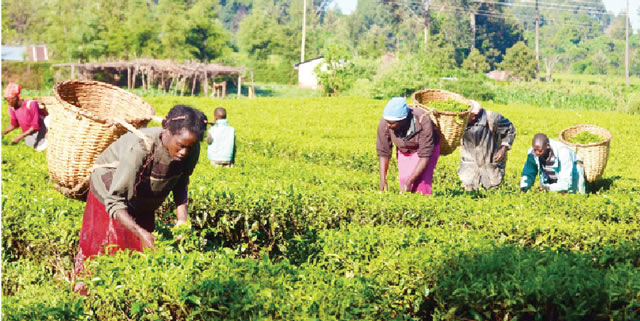
Nigeria is a lush country with fields of beautiful green and arable land. This makes agriculture a large and important sector of the economy. Despite the natural abundance, too many people in Nigeria cannot access a nutritious diet. Agriculture makes up 35 per cent of the GDP of Nigeria, but the potential is largely untapped. Currently, Nigeria imports many goods to meet domestic demand. This makes Nigeria vulnerable to worldwide shocks that affect food prices, such as the illegal Russian invasion of Ukraine, the blockade of shipments of Ukrainian grain, climate disasters, and financial instability.
The European Union and its member-states work on all levels to support Nigerian farmers so that people in Nigeria can enjoy nutritious food all year round and so that the agriculture sector can grow the economy. We believe in the potential of Nigeria’s agriculture. So, what do we do? Many things! Below are some examples.
Let us start from the seed. The EU and its member states make it easier to use high-quality seeds in Nigeria. Through the Netherlands-Nigeria Seed Partnership, Nigerian farmers can access improved seeds (for rice, sorghum, tomatoes, and peppers). Having the seeds isn’t enough: that’s why the EU and its member-states provide vocational training to farmers and companies on using modern seeds and technology.
How do we know what is needed in Nigeria? Local institutions know best. The EU and its member-states fund the International Institute of Tropical Agriculture in Ibadan so that our support is based on facts and targeted to Nigeria. Also, Ghent University in Belgium set up an ‘Africa platform’ with universities such as the Abeokuta University of Medical Sciences to share knowledge and best practices. To understand how to best treat the seeds, Bulgaria funds research programmes in Katsina on soil analysis, irrigation, and mechanisation planning. And to further support farmers in rural areas, Germany works with the Nigerian government to set up consulting services for them.
Next to agricultural produce, livestock is also of importance to food security. Denmark works with the Nigerian government to strengthen livestock production practices and policies and to enhance the local production of milk and fish. In February-March 2024, for the very first time, Nigeria will be showcased in Paris at the largest European agriculture show, under the “Pride of Nigeria” banner.
We know that climate change is negatively affecting the environment and possibilities for farming. Collectively, the interventions of “Team Europe” (EU and its member-states) exceed EUR 1.5 billion in support of climate-smart agriculture in Nigeria, through the development of agricultural value chains (dairy, vegetables, cereals, pulses), entrepreneurship and employment creation, investments in sustainable energy, and the building of roads in rural areas to link produce to markets. Speaking of investments, there are many European food businesses active in Nigeria. You may know brands like GINO, Peak, Fan, and Dano milk. Mobilisation of private capital for impactful and sustainable investments is at the heart of the EU Global Gateway Strategy.
Conflict and instability often lead to food crises. The EU contributes to food security in emergency situations. Through donations from Sweden, food security was supported in the North-East and North-West of Nigeria, and Hungary supports farming projects for returning IDPs in the North. Currently the second highest humanitarian donor in Nigeria, the EU supports emergency food assistance programming in the conflict-affected North-East, as well as actions addressing the alarming levels of acute malnutrition of children under five years of age.
In this world, whatever happens far away also hits close to home. In the region, the EU and its member-states work with ECOWAS on regional agriculture and food security programmes. Through diplomacy and financial support to the Grain from Ukraine initiative, we make sure that Ukrainian grain can reach African countries. The latest such delivery of the 25,000-ton wheat donation from Ukraine has recently reached Nigeria. The timing is critical as the country faces food insecurity, amidst a challenging economic situation. Only some days back, President Bola Tinubu had ordered the immediate release of 102,000 metric tonnes of rice, maize, millet, and garri from government reserves and stores of the rice millers to the Nigerian market to address the most pressing needs.
Two Nigerian states have agriculture in their state mottos (Benue: food basket of the nation and Zamfara: farming is our pride), but our support is to Nigerian partners across the country. Together with the government, the private sector, and farmers, we want to make sure that Nigeria reaches its full agricultural potential, that everyone has access to nutritious food, that more jobs are created, in particular for women and youth, and that the economy grows. We all have an interest in making sure that the price of Nigerian jollof rice doesn’t keep going up.
- Ambassador of the European Union, H.E. Ms Samuela ISOPI, and other EU Ambassadors in Nigeria














